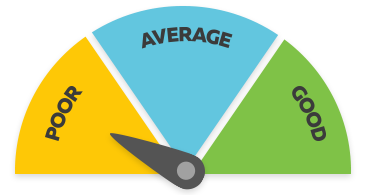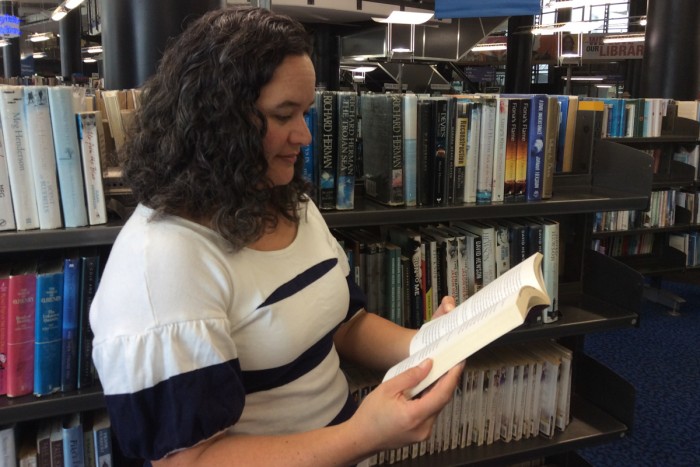Author
Kaituhi Pukapuka
Alternative titles for this job
Authors write stories, scripts, poems, blogs or plays for publication or production, to entertain and inform people.
Pay
Pay rates for authors vary depending on the success of their works.
Source: New Zealand Society of Authors, 2018.
Job opportunities
Pay
Pay for authors varies depending on the success of their works.
Authors may get grants or residencies, which are often accompanied by a living allowance.
Many authors do freelance writing work to supplement their income.
Source: New Zealand Society of Authors, 2018.
(This information is a guide only. Find out more about the sources of our pay information)
What you will do
Authors may do some or all of the following:
- choose and research topics to write about
- write and revise their material
- prepare their work for publication and find a publisher or producer
- discuss further revisions with an editor
- publish their work online
- attend book launches and publicity events
- give public readings
- run writing classes.
Skills and knowledge
Authors need to have:
- excellent writing skills
- knowledge of different writing styles
- knowledge of grammar, vocabulary and spelling
- knowledge of the topics they write about
- the ability to promote themselves
- knowledge of the local and overseas publishing industry.
Working conditions
Authors:
- work flexible hours and may set aside a certain amount of time for writing or words to complete each day
- work wherever it suits them, including offices, libraries, or their homes
- may travel locally, around New Zealand or overseas when researching information or publicising their work.
What's the job really like?

Whiti Hereaka
Author
What does an author typically do?
"In the research phase, I'm typically out and about researching. Meeting people, going to galleries or going wherever the information is that I want to learn. If I'm writing, I spend quite a bit of the day actually writing and I set myself a word target for the day."
What is the hardest part about being an author?
"Most of my writing career I've also had a day job. Finding money can be hard. We're lucky in New Zealand because you can apply for funding from Creative New Zealand and you can get writers' residencies. The difficult bit is selling yourself or your brand to get the funding or residencies."
What is the best part of being an author?
"I get to do what I love. Along the way you get to meet people who enjoy what you've created."
What advice do you have for aspiring authors?
"Read! Read, read, read! Read everything you can, especially in the genre you want to write in. Go and see movies and look at art. Notice how other artists use the tools of language to get ideas across and make you feel things. Be open-minded to experiences as much as you can, because you can draw on those experiences in your writing."
Whiti Hereaka is of Ngāti Tūwharetoa and Te Arawa descent.
Entry requirements
There are no specific requirements to become an author. However, a tertiary creative writing qualification may be useful.
Authors who specialise in a particular subject area, such as those who write textbooks, need expertise in their chosen field. This may require tertiary education in that area.
To get work published, most authors need to first show their ideas or writing to publishers.
Secondary education
There are no specific secondary education requirements to become an author. However, English and te reo Māori are useful.
Additional requirements for specialist roles:
To specialise as an author in a specific subject, such as law, medicine or accounting, you may need to complete a relevant tertiary qualification.
To specialise as a dramatist/playwright, non-fiction author, novelist, poet or scriptwriter you may need to complete a relevant tertiary creative writing course.
Personal requirements
Authors need to be:
- imaginative and creative
- disciplined
- inquisitive and good at observation and listening
- able to accept criticism
- adaptable
- skilled at research and planning
- problem solvers
- happy working on their own.
You need to have discipline and motivation because often you're working for yourself, by yourself on a project no one else really cares about.

Whiti Hereaka
Author
Useful experience
Useful experience for authors includes work:
- as a journalist
- in film, theatre or television
- involving writing
- involving artistic skills.
Find out more about training
- New Zealand Society of Authors
- (09) 379 4801 - office@nzauthors.org.nz - www.authors.org.nz
What are the chances of getting a job?
Most authors need another source of income
Most authors in New Zealand do freelance work or only write part time, and supplement their income by working other jobs.
Getting published is difficult due to the large number of authors seeking publication and a reduction in the number of book publishers operating in New Zealand. However, completing a recognised tertiary writing course could improve your chances of being published or getting writing work.
According to the Census, 1710 authors worked in New Zealand in 2018.
Self-promotion important for authors
Authors need to be able to market themselves. Some are now publishing their work online, or blogging to build their brand and audience.
Authors commonly work for themselves
Most authors are self-employed.
Authors may use their writing skills in journalism, copywriting, scriptwriting or teaching, and work full time for employers such as:
- book publishers
- education institutions
- media outlets
- film, radio and television companies.
Sources
- Creative NZ website, 'Funding opportunities', accessed February 2018, (www.creativenz.govt.nz).
- Harvey, S, author and New Zealand Society of Authors president, Careers Directorate – Tertiary Education Commission interview, February 2018.
- Ministry of Business, Innovation and Employment, '2006-2014 Occupation Data' (prepared for Careers New Zealand), 2016.
- New Zealand Society of Authors website, accessed February 2018, (www.authors.org.nz).
- Stats NZ, '2018 Census Data', 2019.
(This information is a guide only. Find out more about the sources of our job opportunities information)
Progression and specialisations
Authors may move into journalism or public relations roles.
Authors can specialise in a number of roles, including:
- Dramatist/Playwright
- Dramatists/playwrights write scripts for plays and other theatre productions.
- Non-fiction Author
- Non-fiction authors write factual works such as books about historical events.
- Novelist
- Novelists write fiction books and may specialise in writing in a particular genre such as romance or science fiction.
- Poet
- Poets write poems, usually published in collections of works.
- Scriptwriter
- Scriptwriters write scripts for television and film.
Last updated 28 March 2025

